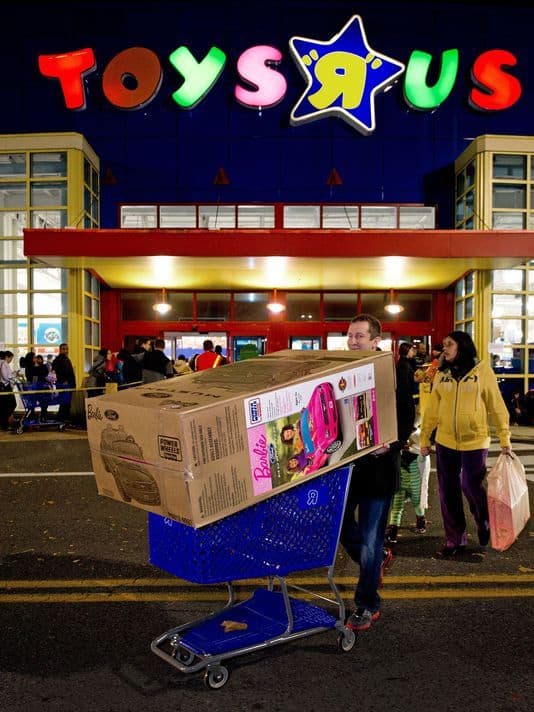
For generations of parents, Toys R Us was the go-to destination to reward a child after scoring the winning soccer goal or to track down the hot plaything for the holidays.
But if the superstore chain doesn’t find a buyer or win a last-minute reprieve, Toys R Us is expected to file for Chapter 7 bankruptcy liquidation next week. And that means many parents and kids alike will have to head elsewhere.
The truth is, many already have. The original big-box toy seller had in recent years fallen behind Amazon and Walmart when it came to being the top destination for families seeking games and gadgets. And Target has been hard on its heels.
“The ongoing sales declines at Toys R Us suggest consumers find other options viable,” says Greg Portell, lead partner in the retail practice of A.T. Kearney, a global strategy and management consulting firm.
Still, the disappearance of Toys R Us, an $11 billion retailer, would be felt.
“Toys R Us is certainly the retailer of choice for a lot of consumers,” Portell says. “If it happens, this shouldn’t be viewed as an inconsequential liquidation. If the typical toy purchase is $100, we are talking about over 100 million purchase occasions that will move. Shoppers will notice.”
Amazon, Walmart and Target, which were already peeling away so many of Toys R Us’ shoppers, are likely to become the prime alternatives if Toys R Us completely exits the scene. But it’s less clear whether any other retailers can become the sentimental favorite that Toys R Us was for so long.
“Your child had a great report card and you would take them to Toys R Us and get them a gift,” said Jim Silver, editor of the toy review website TTPM and a veteran toy expert who has followed Toys R Us for more than 30 years. “They had a great soccer match, you take them to Toys R Us. Where are you going to take them to pick out that gift?”
One thing shoppers shouldn’t fear is prices spiking if Toys R Us disappears. The store chain has often been more expensive than its rivals. Walmart, Amazon and Target often offered toys at steeper discounts to entice shoppers who would then scoop up their other, higher-priced products in other sections of their stores.
That’s not been an option for Toys R Us, what has been known in the retail world as a “category killer” entirely focused as being a one-stop destination for playthings for kids of all ages.
“There is so much competition among other toys retailers,” says Neil Saunders, managing director of retail consultancy GlobalData. “As most products and brands can be easily compared across retailers, price will remain an important factor in driving . . . loyalty.”
Other players are waiting in the wings. Kohl’s and J.C. Penney have been expanding their toy departments in anticipation of more Toys R Us store closings. Party supply chain Party City, which recently hired former Toys R Us vice president Jamie Uitdenhowen, is also expected to beef up its toy offerings, Silver said.
There’s also a chance that a new toy store chain could move to the U.S. from abroad if Toys R Us departs, Silver says.
While new arrivals wouldn’t be able to establish a national or global footprint on par with Toys R Us anytime soon, they could carve out niches in local communities or online.
“Similar to the resurgence of local book stores, there are great opportunities for sharply curated local options,” says Portell. “Consumers enjoy high touch, personal experiences. Local toy stores are increasingly providing that option.”

